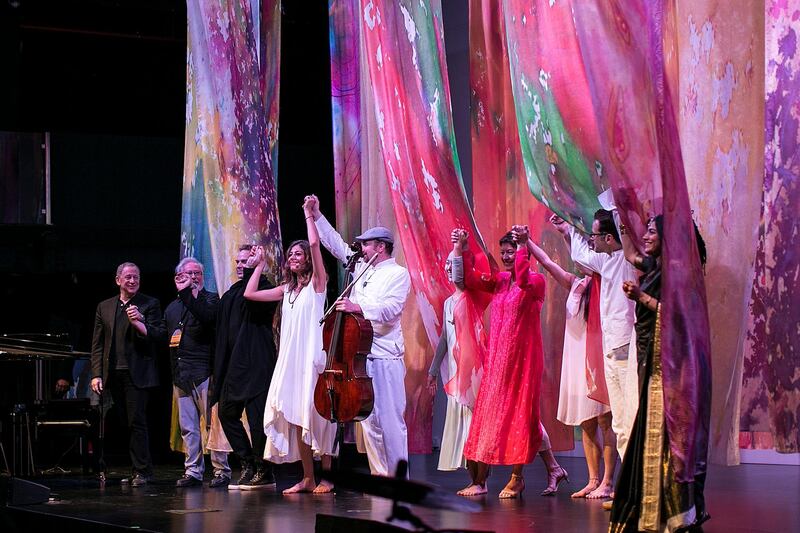We live in a country that has a global culture. The preponderance of an expatriate workforce and the social and economic framework of the UAE mean that more than 200 nationalities from all creeds and religions live harmoniously side by side in what has become a multicultural melting pot.
This might seem a slightly cliched term but it is a true reflection of daily life in the UAE. At the same time, around the world, we know that three-quarters of the most violent and serious conflicts are caused by cultural differences.
Intolerance, hatred, racism and fanaticism are at the heart of our most serious disputes.
It is for that reason that, in 2002, the UN General Assembly, declared May 21 to be the World Day for Cultural Diversity for Dialogue and Development.
Under this initiative, society leaders are encouraged to support sustainable systems of governance for culture and to increase opportunities for artists and cultural professionals.
This is vital; through the soft power of cultural conversation, long-lasting impacts can be made.
Long before its inception, the UAE has been laying a foundation for tolerance and respect.
The Founding Father, the late Sheikh Zayed, said that "to treat every person, no matter what his creed or race, as a special soul, is a mark of Islam" and Mother of the Nation, Sheikha Fatima bint Mubarak, said: "An educated human – man or woman – is the basis of civilisation and the axis of advancement and progress."
____________________________
Read more from Opinion:
[ Justin Thomas: Happiness is good for business – but we can't expect to be happy all of the time ]
[ Whether it's Chairman Mao or Churchill, why not let history be taught by the victors? ]
____________________________
In the Year of Zayed, it is even more evident that tolerance and knowledge have been key principles taken forward by our leaders, with Sheikh Khalifa, President of the UAE, and Sheikh Mohammed bin Zayed, Crown Prince of Abu Dhabi and Deputy Supreme Commander of the UAE Armed Forces, ensuring the same message of peace with an emphasis on education and building the social infrastructure of the country as we know it today.
One way to define culture is as a meeting point between information and understanding. Culture is based on facts, habits, traditions and rituals and also speaks to the soul of a community.
If we can look at another culture and hope for understanding rather than judgment, then we have reached a place for intercultural dialogue and appreciation of diversity.
The UAE has dedicated at least the past decade to a focus on cultural exchange.
In Abu Dhabi, the development of Saadiyat Cultural District and the building of world-class museums such as Louvre Abu Dhabi have gone a long way to extending knowledge and acceptance of different cultures and backgrounds.
In schools, curriculums have been extended to include not just the UAE’s own rich heritage and history but a diverse range of artistic and cultural topics to help to raise well-rounded, intelligent and informed young adults.
In addition to hosting diverse museums, the country organises hundreds of annual festivals that celebrate various art forms, including cinema, music, photography, theatre, painting, sculpture and heritage.
On a federal level, the UAE issued a law to combat discrimination and hatred in 2015 and 2016.
The Ministry of State for Tolerance was established alongside the national tolerance programme.
These initiatives reflect the keenness of our leadership to consolidate the values of harmony and co-existence to ensure safety, security and stability for all people.
Cultural projects are among the most effective ways to create spaces where all people can come together, engage in productive dialogue and pursue transformation.
This year in the UAE saw the second edition of the Culture Summit.
As a response to global challenges, including poverty, extremism, climate change and heritage preservation, the summit convenes government officials, philanthropists, arts administrators, business leaders, technologists and artists from 80 countries to discuss the role that culture can play in addressing such challenges.
With such visionary and pivotal events making up our annual calendar as well as the example that we take from our founding fathers, the UAE looks to inspire other countries to place similar value on shared heritage and culture and in that way, be a beacon to the world about how to foster real and lasting culture exchange.
Saif Saeed Ghobash is the undersecretary of the Department of Culture and Tourism – Abu Dhabi





